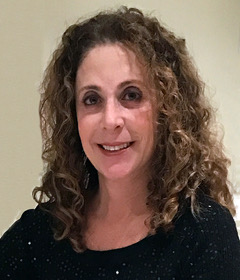One of the most empowering skills we possess is the ability to speak our truth. Why? It gives us hope, understanding and helps us believe in ourselves; qualities that contribute to a self-assured and authentic life.
Recently, several women challenged the confirmation of Judge Brett Kavanaugh to the U.S. Supreme Court, alleging sexual misconduct. Some people questioned the integrity or memories of these women, wondering why, if they experienced a chaotic, painful or cruel event in their lives, they did not previously speak up. Or why a survivor seemed able to recall vivid details of some aspects of the trauma, but not other facts. The validity of emerging memories in survivors is resulting in conversations around the country about the relationship between past traumatic events, memory, and speaking one’s truth.
Shame about a past event is often a key barrier to recalling distressful memories. Shame is different from embarrassment or guilt. When we feel shame we feel flawed and unworthy. Believing others would reject us if they knew our dark and dirty secret, we develop a paralyzing negative view of ourselves. To cope with this shame we may sweep the burdensome feelings of anger, fear, sadness, betrayal, and even repulsion under the carpet.
Unfortunately, this denial of feelings replaces a healthy self-love with a critical and judgmental inner voice. This shame is toxic. It clouds the judgment, creativity and pursuit of healthy activities, and prevents survivors from being the best that they can be. They may engage in self-destructive behaviors and activities as they cover up their self-loathing by trying to be perfect. Or they may be hypersensitive to criticism and be quick to blame others. Shame may result in their sabotaging success in school, work or relationships, or stuffing their feelings through the abuse of mood altering drugs and alcohol. Through shame they lose touch with their authentic feelings and thoughts and the ability to fully understand and accept ourselves for who they really are. These conditions squash their ability to know or speak their truth.
Worse yet, they cannot deceive their subconscious for long, and their emotional pain may eventually trigger physical challenges. Years ago when practicing as a hospital social worker I received a referral from a concerned surgeon. He was about to schedule exploratory surgery for a young woman complaining of nonspecific abdominal pain, and wanted to rule out any psychological issues. My interviews with the patient revealed that years prior, she had had an abortion and was filled with self-blame and guilt over terminating the pregnancy. Her feelings of self-disgust and shame had settled in the physical part of her body she felt she had betrayed. The pain this young woman suffered was real, but not something surgery could repair.
It takes courage for those with long repressed painful memories to stop denying or rejecting any part of themselves, to befriend their feelings and embrace their ability to speak their truth. Doing so won’t undo the traumatic past, and powerful negative feelings can be overwhelming. Yet diligence and determination will help those on the healing journey to quiet their inner critic and enjoy the complete, whole existence intended for them. This is important for being able to move past survival and focus on establishing resilience.
Additionally, some survivors struggle with an inconsistency about recalling detailed memories of the assault. Their memories are fragmented, creating distrust from others as to the legitimacy of a sexual assault. This fragmentation of memories occurs because of the way we are built. In the primitive part of our brain, which has been part of our anatomy for 200 million years, are two almond shaped groups of cells called the amygdala. The amygdala attempts to ensure our survival by protecting us from danger.
A traumatic event can cause us to be overwhelmed with information and emotions. This can trigger our amygdala to retain memories of events that we fear will threaten our survival. Details such as house location, date of assault, and names of possible witnesses, not so much so. While these facts are vital for legal purposes, the brain views these as peripheral details and does not retain them over time.
When we understand that this recovery process is unique to every survivor, and is often a life-long process, misunderstandings and prejudices against the survivor can quickly begin to dissolve. To not understand is to unfairly label the victim as being unreliable and lacking in credibility, and in such cases, the sexual predator to not be held accountable.

